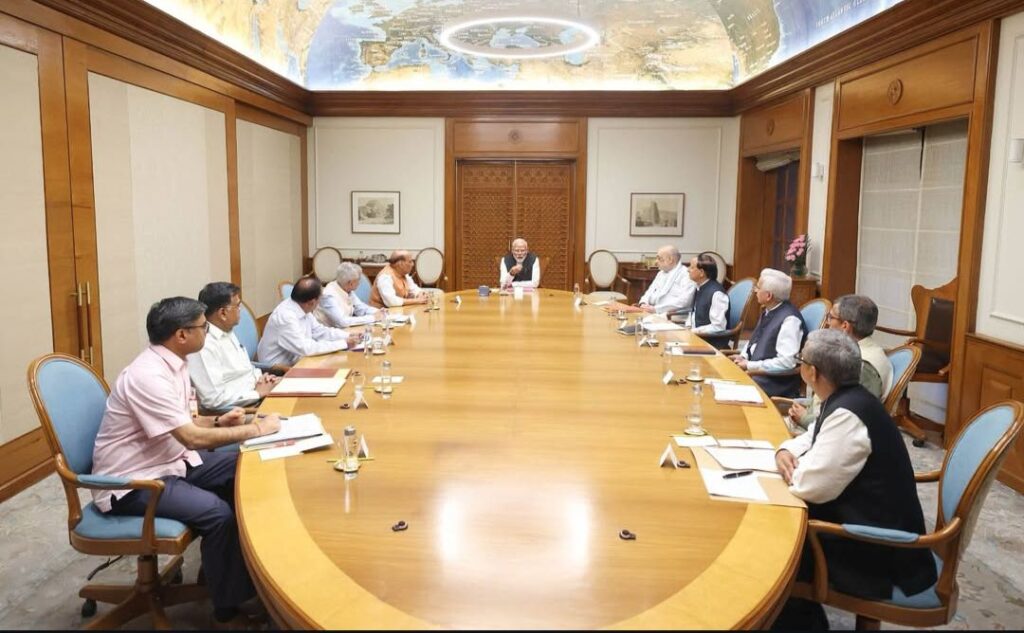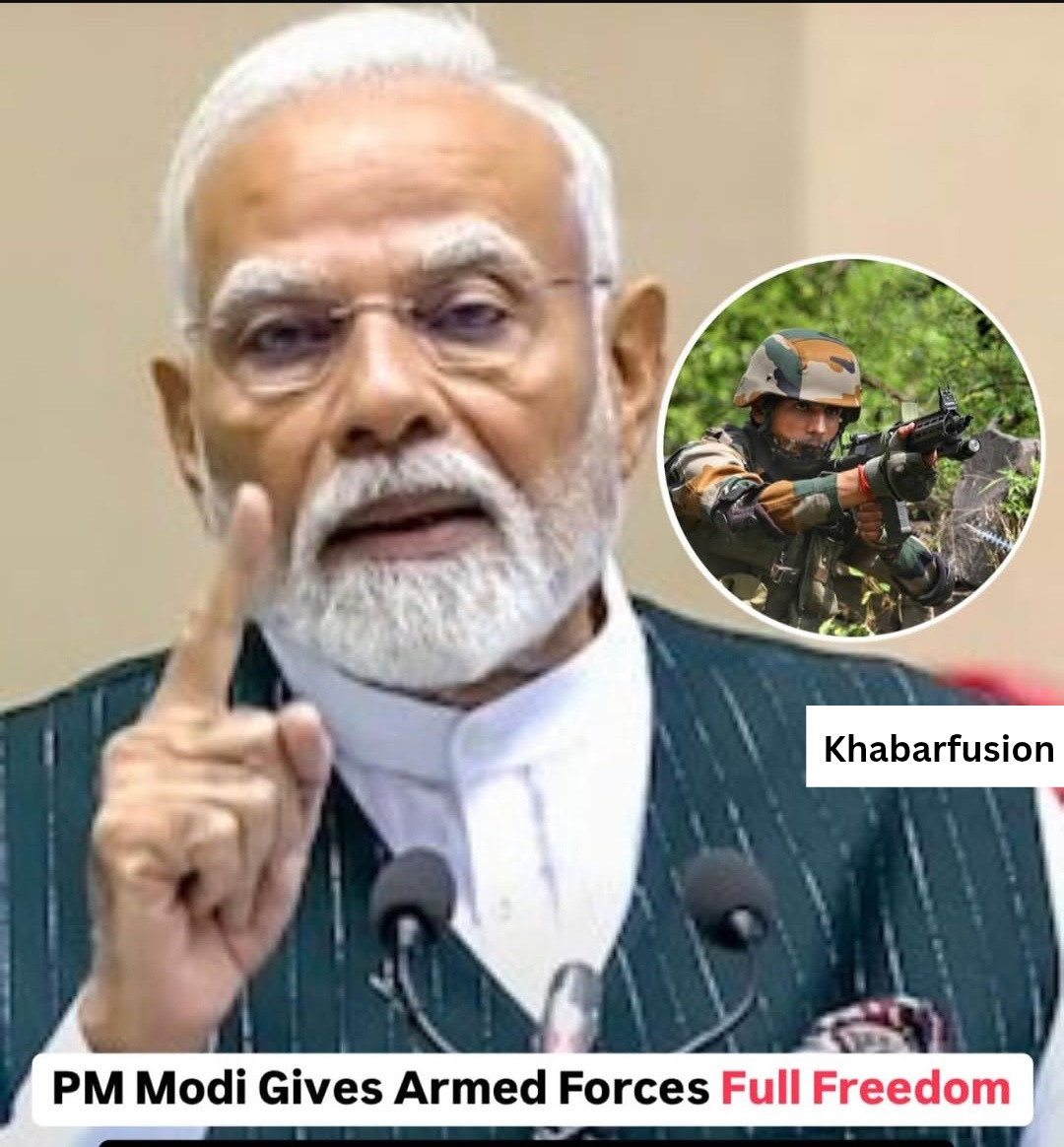🖋️ By: Vivek gautam
In the wake of a deadly terrorist attack in Pahalgam, Jammu and Kashmir, that killed 26 innocent civilians on April 22, Prime Minister Narendra Modi has sent a clear and powerful message. On Tuesday, he chaired a high-level security meeting in New Delhi and gave the Indian armed forces full operational freedom to decide the timing, method, and scale of India’s response.
💥 The Tragedy in Pahalgam
The terror attack, which shook the entire nation, occurred in the peaceful region of Pahalgam—a popular tourist spot in Jammu and Kashmir. Armed militants opened fire on a civilian convoy, killing 26 and injuring several others. Early investigations point to the involvement of Pakistan-backed terrorist outfits, though an official confirmation is awaited.

🛡️ PM Modi’s Security Meeting: A Firm Response
The security meeting was attended by key officials, including National Security Advisor Ajit Doval, Defence Minister Rajnath Singh, top military commanders, and intelligence chiefs. During the meeting, PM Modi emphasized that the Indian armed forces would have complete freedom to plan and execute a suitable response.
“It is our national resolve to deal a crushing blow to terrorism,” PM Modi said, as quoted by news agency PTI.
🔍 What Does ‘Full Operational Freedom’ Mean?
This statement signifies that the military does not need to wait for government approval on how or when to respond—they can act based on real-time strategic and tactical needs. It’s a green signal for decisive action, whether through counter-strikes, covert ops, or heightened border security.
Experts suggest this could mirror India’s past responses, such as the 2016 surgical strikes or the 2019 Balakot airstrike, depending on intelligence assessments and diplomatic considerations.
🌐 India’s Anti-Terror Stance Gets Sharper
India has consistently taken a tough stance against terrorism, especially those funded or supported across the border. This move by PM Modi reiterates that India will not tolerate threats to its sovereignty or safety of its citizens.
The international community has also responded with sympathy and support. Countries like the United States, France, and Japan have condemned the attack and expressed solidarity with India’s right to self-defense.
🧠 Public Reaction: United in Grief and Resolve
As news of the attack and the meeting spread, social media erupted in solidarity with the armed forces. Hashtags like #PahalgamAttack, #IndiaFightsTerror, and #StandWithForces trended nationwide. Citizens are expressing grief, anger, and a strong desire for justice.
Many have applauded PM Modi for taking swift and bold action.
⏳ What Happens Next?
While the details of any potential military or diplomatic response remain classified, heightened security has already been observed in sensitive regions. Border areas are under increased surveillance, and intelligence inputs are being verified with urgency.
This may be a long-term shift in India’s internal and external security approach.
🙏 Conclusion: A Nation That Will Not Be Broken
Terrorism seeks to instill fear—but what India has shown time and again is courage, resilience, and unity. PM Modi’s strong words and decisive leadership reflect a larger truth: India will not bow down to fear.
As we mourn the loss of innocent lives, we stand by our armed forces and security personnel, trusting them to act with strength, precision, and honor.

